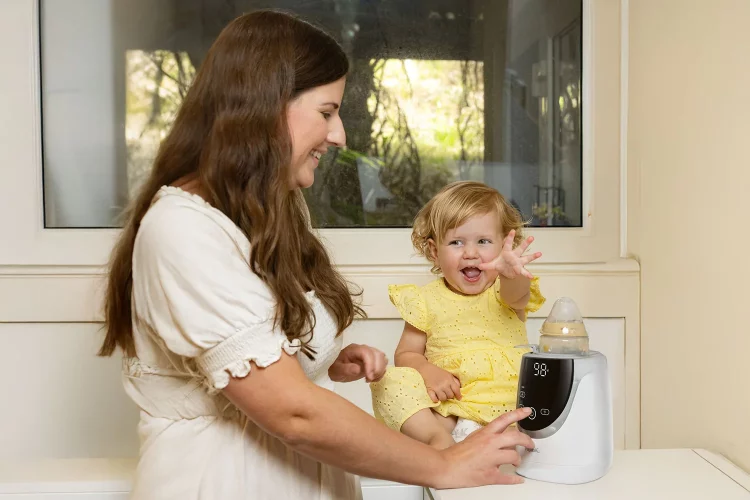Beyond Thirst: The Body’s Subtle Language of Hydration
Water is fundamental to life, but its role in our emotional and cognitive states is often overlooked. We know hydration affects our energy levels, concentration, and mood, yet emerging science and technology are now suggesting something more radical: that water and the technologies surrounding it might “sense” or reflect our mental state. In recent years, a surge in hydration-focused wellness products—smart bottles, biofeedback-driven cups, and apps integrated with wearables—aims to decode the intimate link between fluid intake, stress, and mental clarity. This raises an intriguing question: Can the way we hydrate become a diagnostic or even therapeutic tool for emotional well-being?
The Physiology of Hydration and Mental Health
Our brains are about 75% water. Even mild dehydration—as little as 1% fluid loss—can impair cognitive performance, mood, and concentration. The body’s fluid balance influences neurotransmitter synthesis, blood flow, thermoregulation, and stress hormone production. When you’re under pressure, cortisol levels spike, triggering fluid redistribution in the body and increasing water loss through respiration and urination. Chronic stress also reduces thirst cues, leading to “silent dehydration.” This underhydrated state can then impair judgment, trigger fatigue, and exacerbate emotional volatility. In this light, proper hydration isn’t just about quenching thirst—it’s foundational to cognitive resilience.
Hydration Tech: Smart Bottles with a Brain
Smart water bottles are evolving into biofeedback devices. These gadgets now do far more than track ounces consumed. Equipped with Bluetooth, motion sensors, and biometric integration, products like HidrateSpark, Ulla, and LARQ PureVis link with smartphones and wearable devices to assess hydration in real-time and correlate it with stress, sleep, and heart rate variability (HRV). Some devices prompt users to drink based on sweat rates, ambient temperature, or detected physiological stress markers. As AI algorithms evolve, these smart systems aim to not only track hydration but predict when users are becoming mentally foggy or emotionally dysregulated—offering timely nudges to drink water as a calming intervention.
Can a Cup Read Your Mood? Emerging Interfaces
Startups are pushing hydration tech even further. Several prototypes explore the use of biometric-enabled cups that read salivary conductivity or skin galvanic response to infer stress levels. Others integrate mood journaling into water-tracking apps, encouraging users to associate hydration with emotional check-ins. For example, if your app detects decreased sleep quality, erratic heart rhythms, or changes in facial micro-expressions (via selfie scans), it may suggest increasing water intake or adjusting electrolyte balance. These features are rooted in a growing understanding that hydration impacts not only the physical body but also emotional processing and mood stability.
The Psychological Power of Ritual Hydration
Drinking water is one of the most repetitive acts in our daily lives. When turned into a mindful ritual, it becomes a moment of self-connection. Psychologists and somatic therapists increasingly use water consumption as an anchor in mindfulness practices: pausing to drink becomes a cue for body awareness, breath regulation, and emotional grounding. Hydration apps like WaterMinder and Plant Nanny gamify this process, turning each sip into an act of self-care. Over time, this builds behavioral momentum and reinforces the connection between physiological care and emotional well-being. The simple act of reaching for water becomes imbued with intention and introspection.
Electrolytes, Mood, and Neurochemistry
Hydration isn’t just about water; it’s also about electrolytes—sodium, potassium, magnesium, and chloride—which regulate nerve impulses and brain activity. Imbalances can manifest as irritability, depression, anxiety, and cognitive fatigue. In stressful conditions, the body loses more sodium and magnesium, both critical for calming the nervous system. Innovative hydration solutions like LMNT, Nuun, and Liquid I.V. offer functional formulas aimed at restoring electrolyte balance under mental and physical duress. These beverages are now being marketed not only for athletes or travelers, but also for knowledge workers, mental health clients, and high-stress professionals seeking cognitive clarity and emotional regulation.

Hydration and the Gut-Brain Axis
Another dimension where hydration affects mood is the gut-brain axis. Dehydration compromises digestive function and microbial health, both of which play pivotal roles in neurotransmitter production—especially serotonin. Water supports peristalsis, nutrient absorption, and detoxification, and its role in gut health directly impacts mood through vagus nerve signaling. Emerging studies suggest that even short-term dehydration alters microbiota composition, increasing inflammation and stress-related behaviors. Integrative medicine practitioners now consider hydration status in mental health treatment plans, particularly for patients with anxiety, brain fog, or mood instability.
Athletes and Cognitive Fluidity
Elite sports performance has always tracked hydration—but the focus is now expanding from muscle efficiency to cognitive optimization. In the NBA, NFL, and Formula 1, hydration protocols include real-time sweat analytics and cognitive testing. Coaches monitor how dehydration impairs reaction time, emotional control, and decision-making speed. In e-sports, where players sit but perform intense cognitive tasks, hydration tracking is equally critical. These findings are trickling down into everyday biohacking: professionals now use hydration reminders as part of their focus, memory, and stress management routines.
AI, Mood, and Hydration Integration
The next generation of hydration tech may live inside your wellness ecosystem. Imagine this: Your smartwatch detects elevated stress through HRV and skin temperature. Your hydration app, synced with it, prompts you with a specific electrolyte drink. Your mental wellness assistant logs the intervention and asks, “How do you feel now?” Over time, AI learns your unique hydration-emotion-response curve, offering more personalized suggestions. This loop between physical input and emotional output mirrors what functional medicine aims to achieve—but now delivered in real-time, automatically, and based on thousands of data points.
Ethical and Privacy Considerations
With the rise of hydration-sensing devices comes a slew of privacy concerns. Is it ethical for a device to infer your emotional state based on fluid intake or salivary analysis? How will this data be stored, and could it be used by employers or insurance companies? Developers must build transparent privacy policies, offer local data storage options, and ensure emotional inference algorithms are used for user benefit rather than surveillance. Emotional data is among the most sensitive we produce—when linked with hydration tracking, it deserves the highest ethical guardrails.
Is Hydration the New Meditation?
With growing awareness of the mind-body connection, hydration may soon take its place alongside sleep and breathwork as a pillar of emotional wellness. It’s measurable, trainable, and inherently rhythmic—qualities that make it ideal for habit formation. As tech continues to evolve, hydration tracking may become less about quantity and more about timing, rhythm, and bio-individual response. In this view, hydration is no longer a passive act of consumption but an active dialogue between physiology, technology, and emotional self-awareness.
Conclusion: Water as a Mirror of the Mind
Water doesn’t “know” when you’re stressed—but your body does, and water is a medium through which those signals pass. Through advanced sensors, smart integration, and behavioral insights, hydration technology is beginning to reflect the hidden states of our nervous systems. When stress shortens our breath, speeds our heart, and clouds our mind, it also shifts our hydration dynamics. By tuning into that relationship, we don’t just become better hydrated—we become more emotionally attuned. In the end, the cup you raise to your lips may carry more than water; it may carry the weight of a healing pause, a deep breath, and a step back into balance.







































